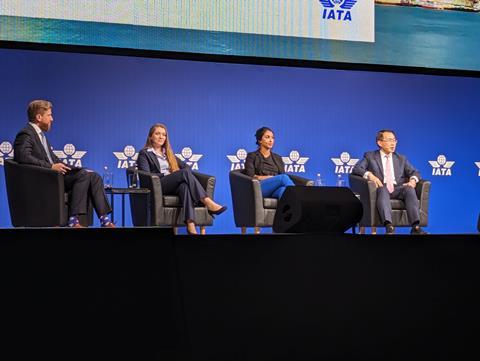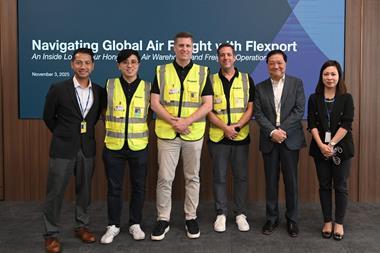
Generic, traditional talent attraction and retention incentives set the industry up to fail because young people are seeking tailored work setups that suit their needs.
Building, nurturing and retaining vitally needed young talent in the industry requires more smart engagement at every level of the employment cycle, agreed panel members in the People in Air Cargo session at the 2024 IATA World Cargo Symposium (WCS).
Janina Meininger, business development manager, CHI Deutschland Cargo Handling, said on the subject of attracting young talent to the industry it is important to get in touch with young people as soon as possible within the education system because they may not know the industry is a career option.
"Air cargo is a hidden industry," she stated, adding that even when the industry is known of, it can sometimes be seen as "antiquated" because, for example, it is further behind in digitalisation than other industries.
AlAnood AlSuwaidi, senior vice president cargo MEAA at Menzies Aviation agreed that engagement is important to make the industry known, and stakeholders should be promoting the industry more.
"We don't market what we do enough," she told delegates. Social media applications, which young people use more than traditional media, could be used more effectively to demonstrate how the industry has made an effort to modernise itself, both by virtue of using social media itself, and as a tool to highlight industry initiatives.
HACTL chief executive Wilson Kwong, also a panellist, illustrated this point with an example of a video PR project the company made that he said was edited to resemble a film more so than a corporate video, and was therefore more interesting and valuable as a recruitment tool than previous methods.
Commenting on the retention of staff, Meininger highlighted three action points: provide mentors to guide young people; find people's individual skills and "foster these"; and assess the pace of the employee to adjust their learning and development pathway accordingly.
She added that companies should keep an open mind about employees' skills beyond paper qualifications to understand their true value.
AlSuwaidi added that in addition to competitive salaries, shift flexibility and work-life balance are also important factors for employees, alongside setting clear, personalised career goals with staff so that they feel they're "not just another number" and having personable leadership that employees can relate and aspire to.
Kwong pointed out that in larger organisations it isn't always realistic or possible to meet individual needs, which is why an attractive employee setup should always be built into a company in a top-down approach.
HACTL's human resources data, said Kwong, shows that over half of employees have been with the company for over 10 years. Robust management training plays a key role in this success story, he explained.
On reducing turnover, he said: "We can all do it if we put our hearts into it."
AlSuwaidi added: "We as an industry are doing well in retention". But she issued a warning against complacency on this matter. Company "culture affects the bottom line" as much as other factors, she said.















